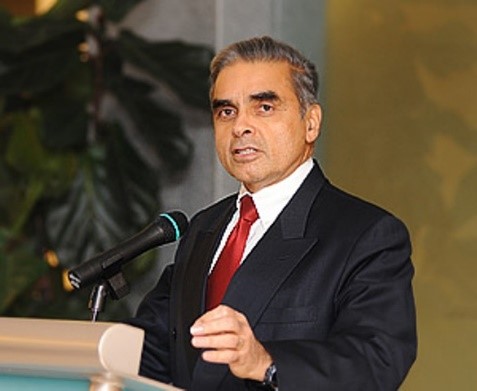A report released by the United Nations Conference on Trade and Development recently calls Africa a ‘net creditor to the world’.
The export of commodities such as gold, diamond and platinum is responsible for almost half of the total figure lost every year. Companies underdeclare the value of exports, cheating on payments of taxes and royalties.
Understating a commodity’s true value deprives developing countries of foreign exchange and tax revenue.
Economists have argued that despite being aid-dependent, Africa is actually a net exporter of capital due to tax-dodging and people hiding cash in tax havens.
The lost funds could be used to provide social services such as staffing hospitals which have been strained by the coronavirus pandemic.
Activists say countries should introduce tough regulations on multinational companies and on practices such as profit repatriation.
Africa and remaking the new world order
The annual Babacar Ndiaye Lecture has taken place virtually for the first time, and brought together leaders in the public and private sectors, think-tanks, academia and the general public to engage with one of the most thought-provoking speakers in the world today.
This year’s keynote speaker, Professor Kishore Mahbubani – the foremost expert on China and the author of several books including the latest published this year ‘Has China Won?’ and ‘Has the West Lost It?’. Mahbubani was with the Singapore Foreign Service for 33 years.
He had postings in Cambodia, Malaysia, Washington DC and New York, where he served twice as Singapore’s Ambassador to the UN and served as President of the UN Security Council in January 2001 and May 2002.
A regular on international news networks, he is known for his strategic thinking and candour. In his latest book, he implies that the West is misreading China and has been quoted as saying that “many developed countries are now facing the prospect of secular stagnation”.
In his writings and public appearances, Professor Mahbubani has made the case that the balance of power has been shifting from the West to the East, and that the Coronavirus pandemic has the potential to accelerate this change.
Dr. Hippolyte Fofack, Chief Economist at Afreximbank, said that “in a world that is changing, with ever greater uncertainty and complexity, it is more important than ever to understand the current geopolitical shifts and discern where the trends are pointing to”.
The event also included opening remarks by Professor Benedict Oramah, President and Chairman of the Board of Directors, Afreximbank, who gave a tribute to Dr. Babacar Ndiaye by his former colleague Mrs. Arunma Oteh, Vice President Corporate Services, African Development Bank (2006-2009), Vice President & Treasurer, World Bank Group (2015-2018) and currently Professor at Oxford University, UK; followed by a Question and Answer session.
The event offered an insightful and provocative look into global geopolitics and the ways in which Africa can position itself to take advantage of the current dynamics.
The Babacar Ndiaye Lecture series, launched by Afreximbank 4 years ago, honour the founding role the late Dr. Babacar Ndiaye played in establishing the Afreximbank. As President of the African Development Bank from May 1985 to August 1995, he is credited with championing Africa’s economic growth and progress. Describing Dr. Ndiaye, President Oramah had this to say: “Dr. Ndiaye saw tomorrow and pursued his vision with vigour, undeterred by numerous obstacles. This is what the annual lecture series aims to achieve, to help us strengthen our vision for Africa and help us navigate the turbulent waters”.
Speakers at previous Babacar Ndiaye lectures include Professor Joseph Stiglitz, the 2001 Nobel Laureate in Economics; and Professor Jeffrey D. Sachs, Professor and Director of the Centre for Sustainable Development, Columbia University; HE Dr. Olusegun Obasanjo, former President, Federal Republic of Nigeria; and General William E. ‘Kip’ Ward, former Commander of the US Africa Command, Africom.










